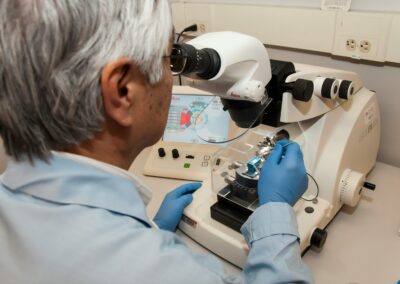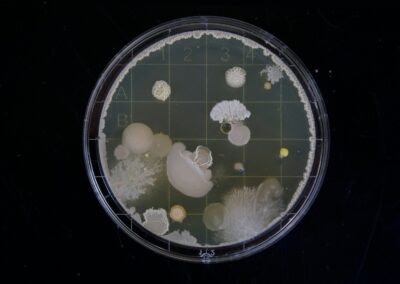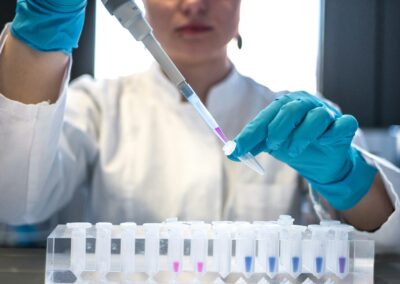Understanding the Influence of Cultural and Religious Beliefs on Synthetic Biology
The Intersection of Culture, Religion, and Ethics in Synthetic Biology
The ethical discourse on synthetic biology is profoundly influenced by cultural and religious beliefs, particularly in regions like Saudi Arabia and the UAE, where these factors play a central role in societal values and decision-making processes. Synthetic biology, which involves the design and construction of new biological entities, raises numerous ethical questions that intersect with cultural and religious norms. Understanding these influences is crucial for navigating the complexities of ethical decision-making in this rapidly evolving field.
In Saudi Arabia and the UAE, Islamic principles significantly shape the ethical landscape. The concept of stewardship (Khilafah) in Islam, which emphasizes the responsibility of humans to protect and maintain the natural world, is a key consideration. This principle supports the use of synthetic biology for environmental and medical advancements, provided that these applications do not harm natural ecosystems or violate the sanctity of life. Consequently, ethical guidelines in these regions often reflect a balance between innovation and the preservation of natural and moral order.
Cultural beliefs also play a critical role in shaping public perceptions and acceptance of synthetic biology. In societies where traditional values and community cohesion are highly valued, there is often a cautious approach to new technologies that could disrupt social norms or pose unknown risks. In Riyadh and Dubai, engaging with community leaders and religious scholars is essential for fostering a broad understanding and acceptance of synthetic biology. This inclusive approach ensures that ethical considerations are aligned with cultural values, promoting responsible and socially accepted advancements.
Implementing Ethical Guidelines in Synthetic Biology Projects
The implementation of ethical guidelines in synthetic biology projects requires careful consideration of cultural and religious beliefs. In Saudi Arabia and the UAE, regulatory frameworks are often developed in consultation with religious authorities and cultural experts to ensure that new technologies align with societal values. This collaborative approach helps address ethical concerns and fosters public trust in scientific advancements.
Change management and leadership skills are crucial for navigating the ethical complexities of synthetic biology. Business executives and mid-level managers must be equipped to lead their organizations through the ethical landscape, ensuring that all projects adhere to both scientific and cultural standards. Effective communication is key in this process, as it involves articulating the benefits and potential risks of synthetic biology in a manner that resonates with cultural and religious values. In Riyadh and Dubai, leveraging executive coaching services and management consulting can help leaders develop the necessary skills to manage ethical considerations effectively.
Moreover, the integration of advanced technologies such as Artificial Intelligence (AI) and blockchain can support the ethical implementation of synthetic biology projects. AI can assist in predicting and mitigating potential risks, while blockchain provides a transparent and secure framework for tracking the development and deployment of synthetic organisms. In the technologically advanced environments of Saudi Arabia and the UAE, these innovations enhance the integrity and accountability of synthetic biology applications, ensuring that ethical standards are upheld throughout the project lifecycle.
The Role of Ethical Discourse in Advancing Synthetic Biology
Ethical discourse plays a pivotal role in advancing synthetic biology by ensuring that technological developments are guided by societal values and moral principles. In Saudi Arabia and the UAE, ongoing dialogue between scientists, ethicists, religious leaders, and policymakers is essential for addressing ethical challenges and fostering public engagement. This dialogue helps build a shared understanding of the potential benefits and risks of synthetic biology, promoting a balanced approach to innovation.
Leadership and project management are essential for facilitating ethical discourse and integrating its outcomes into synthetic biology projects. Leaders must inspire their teams to consider ethical implications at every stage of development, from research and design to implementation and monitoring. In Riyadh and Dubai, strong leadership can help bridge the gap between technological innovation and ethical responsibility, ensuring that synthetic biology advances in a manner that is both scientifically sound and culturally sensitive.
#EthicalDiscourse #SyntheticBiology #CulturalBeliefs #ReligiousBeliefs #BusinessSuccess #LeadershipSkills #AI #Blockchain #GenerativeAI #ChangeManagement #ExecutiveCoaching #EffectiveCommunication #ManagementConsulting #SaudiArabia #UAE #Riyadh #Dubai























